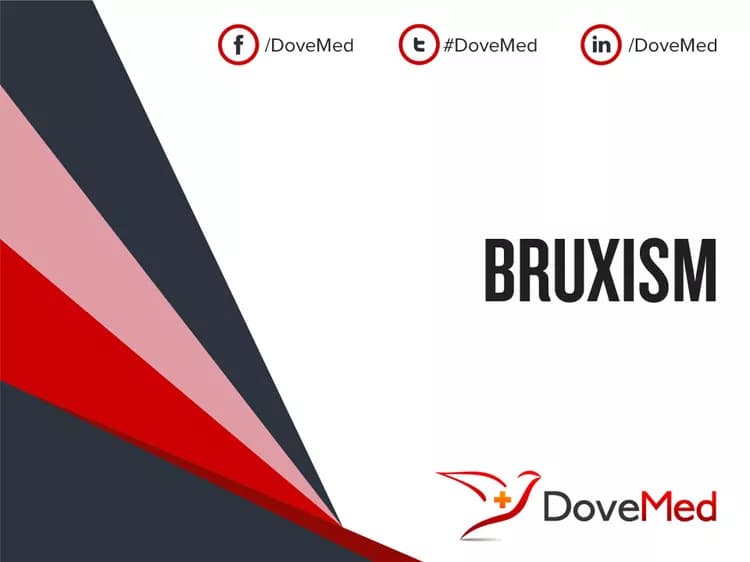What are the other Names for this Condition? (Also known as/Synonyms)
- Excessive Clenching
- Teeth Grinding
What is Bruxism? (Definition/Background Information)
- Bruxism is a condition where an individual habitually and excessively clenches or grinds their teeth. It is also known as Teeth Grinding, and is characterized by signs and symptoms such as anxiety, muscle tension, tooth sensitivity, and the wearing down of teeth. Bruxism is more common among children
- Currently, the cause of Bruxism is not well understood, but it may be the result of physical and psychological factors. Certain risk factors, such as stress, personality type, and ingesting stimulating substances, may increase the chance of developing Bruxism
- A healthcare provider can diagnose Bruxism by performing an oral examination. Upon diagnosis, the provider may recommend treatment options such as a mouth guard, relaxation techniques, and massage therapy
- Complications, such as tooth fractures, depression, and receding gums, can complicate the prognosis. However, if proper treatment is provided, the prognosis is generally good
- Preventative measures, such as dental correction, reducing stress levels, and behavioral therapy, can help lower the risk for developing Bruxism
Who gets Bruxism? (Age and Sex Distribution)
- Both children and adults may develop Bruxism, although children are more likely to be affected by the condition
- Bruxism is a common condition that affects males and females of different races and ethnicities; no specific gender or racial preference is observed
What are the Risk Factors for Bruxism? (Predisposing Factors)
The risk factors for Bruxism may include:
- Stress: Individuals who are under high stress levels have an increased risk for Bruxism
- Age: Younger kids are more likely to be affected
- Certain personality types: Aggressive, competitive, or hyperactive personalities have an increased risk for Bruxism
- Substances that act as stimulating agents, such as caffeinated drinks, can also increase the risk
It is important to note that having a risk factor does not mean that one will get the condition. A risk factor increases one's chances of getting a condition compared to an individual without the risk factors. Some risk factors are more important than others.
Also, not having a risk factor does not mean that an individual will not get the condition. It is always important to discuss the effect of risk factors with your healthcare provider.
What are the Causes of Bruxism? (Etiology)
The exact causes of Bruxism are not completely understood. It may be caused by:
- Physical conditions such as misaligned teeth, sleep problems, and acid reflux into the esophagus
- Psychological causes of Bruxism may include anxiety, stress, anger, and frustration
- Some individuals may use Bruxism as an involuntary focusing habit when doing certain activities
What are the Signs and Symptoms of Bruxism?
The signs and symptoms of Bruxism may include:
- Anxiety, stress, and depression
- Muscle tension, headaches, and insomnia
- Sensitive teeth, fractured teeth, teeth that are worn down
- Eating disorders
- Sore and painful jaw
- Tongue indentations
- Bruxism may result in loud clenching noise during sleep, which may even disturb one’s sleep partner
How is Bruxism Diagnosed?
Bruxism may be diagnosed through the following tools:
- Thorough examination of past medical history and a complete physical examination
- A thorough oral exam
- If Bruxism is caused by an underlying illness, further tests and evaluations may be necessary
Many clinical conditions may have similar signs and symptoms. Your healthcare provider may perform additional tests to rule out other clinical conditions to arrive at a definitive diagnosis.
What are the possible Complications of Bruxism?
The complications of Bruxism may include:
- Depression
- Insomnia
- Bruxism may be associated with eating disorders
- Fractured teeth, receding gums, jaw pain
- Headaches and ear pain
How is Bruxism Treated?
Bruxism may be treated using the following methods:
- Use of mouth guards or splints to prevent damage to teeth
- Avoiding hard foods and chewing gum
- Massaging the neck, shoulders, and face to reduce pain and relieve stress
- Modification of daytime behavior to reduce nighttime clenching
- Reduction in daily stress by learning relaxation techniques; use of muscle relaxants
- Dental correction of teeth that are not properly aligned
- Biofeedback: It is a type of therapy where in a biofeedback specialist helps control the muscle clenching of an individual (both voluntary and involuntary)
Young individuals with Bruxism usually do not require any treatment, as they are able to outgrow the disorder.
How can Bruxism be Prevented?
Bruxism can be generally in some cases prevented by:
- Reducing stress and managing anxiety
- Avoiding foods and drinks that have caffeine in them
- Avoiding alcohol can help prevent Bruxism
- Avoiding chewing on non-food objects or materials
- Learning techniques to relax the jaw muscles
- Undertaking regular checkups by a healthcare provider
What is the Prognosis of Bruxism? (Outcomes/Resolutions)
- The prognosis for Bruxism is good, if the condition is treated appropriately
- If left untreated, complications may lead to tooth damage and prolonged stress
Additional and Relevant Useful Information for Bruxism:
The following links are useful resources for additional information:
http://www.dovemed.com/diseases-conditions/tension-headache/
http://www.dovemed.com/diseases-conditions/depression-children-and-teens/
Related Articles
Test Your Knowledge
Asked by users
Related Centers
Related Specialties
Related Physicians
Related Procedures
Related Resources
Join DoveHubs
and connect with fellow professionals


0 Comments
Please log in to post a comment.